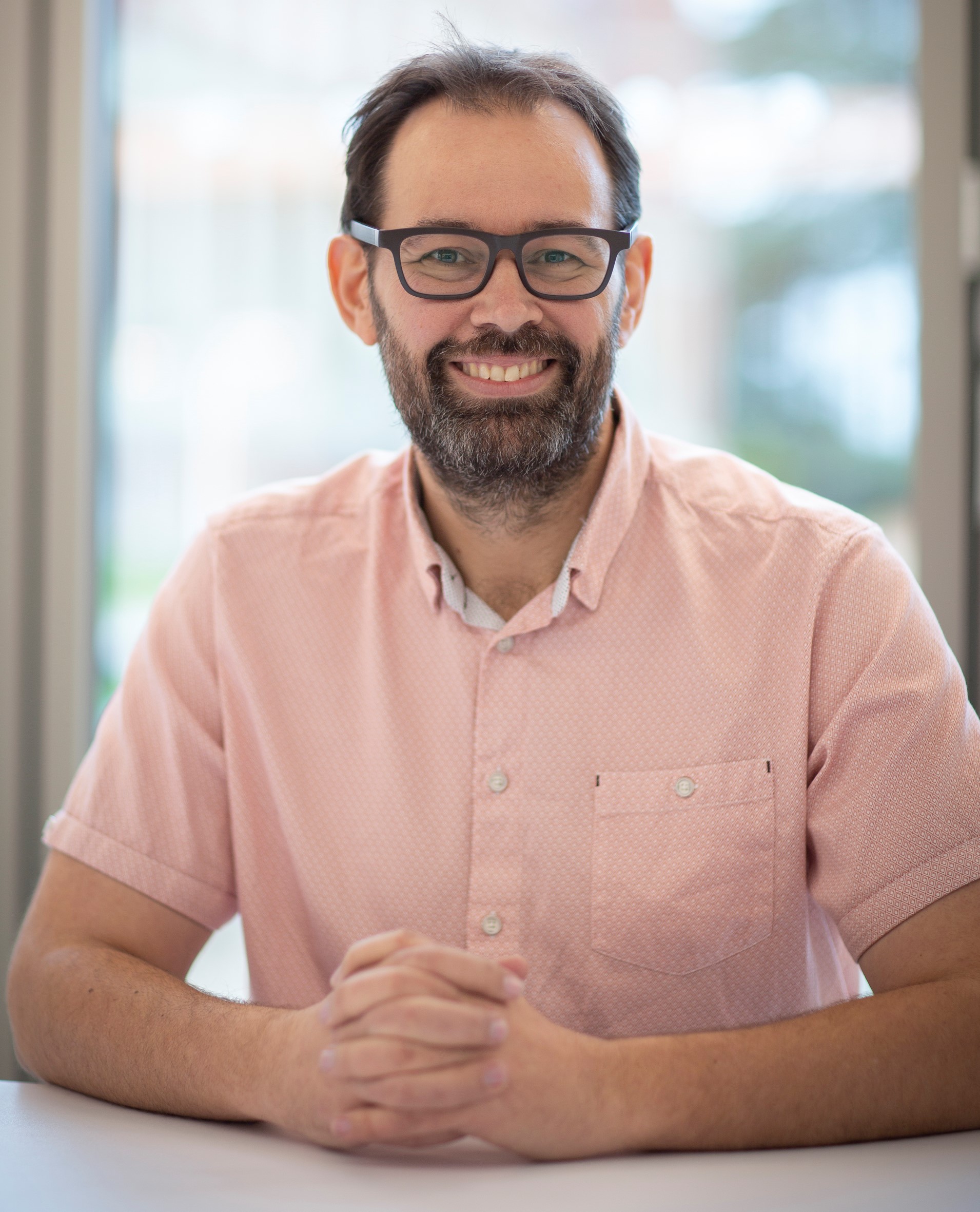Prof Adrian Liston, BSc(Hons) GCertHE MPH PhD FMedSci FRSB
Prof  Adrian Liston is Professor of Pathology at the Department of Pathology, University of Cambridge, Honorary Group Leader at the Babraham Institute, Professorial Fellow and Director of Studies at St Catharine's College, and Editor-in-Chief of Immunology & Cell Biology. Liston runs a biomedical research laboratory together with Dr James Dooley, Principal Research Associate. The Liston-Dooley laboratory currently works on understanding the interaction between the immune system and the tissues, in particular the brain and lung. The laboratory has extensive experience in the fields of autoimmune genetics, diabetes, primary immunodeficiencies, systems immunology, the thymus and regulatory T cells. Beyond his research interests, Liston writes extensively about science careers: how early career scientists can navigate the academic career pathway and succeed in starting their own lab, and what should be done to make scientific careers more equitable. Liston openly discusses his experience as a scientist-parent, and has published the illustrated children's books "All about Coronavirus", "Battle Robots of the Blood" and "Maya's Marvellous Medicine". Liston coordinated the "Sensory Science" program to generate and present sci-art for the blind and low vision community.
Adrian Liston is Professor of Pathology at the Department of Pathology, University of Cambridge, Honorary Group Leader at the Babraham Institute, Professorial Fellow and Director of Studies at St Catharine's College, and Editor-in-Chief of Immunology & Cell Biology. Liston runs a biomedical research laboratory together with Dr James Dooley, Principal Research Associate. The Liston-Dooley laboratory currently works on understanding the interaction between the immune system and the tissues, in particular the brain and lung. The laboratory has extensive experience in the fields of autoimmune genetics, diabetes, primary immunodeficiencies, systems immunology, the thymus and regulatory T cells. Beyond his research interests, Liston writes extensively about science careers: how early career scientists can navigate the academic career pathway and succeed in starting their own lab, and what should be done to make scientific careers more equitable. Liston openly discusses his experience as a scientist-parent, and has published the illustrated children's books "All about Coronavirus", "Battle Robots of the Blood" and "Maya's Marvellous Medicine". Liston coordinated the "Sensory Science" program to generate and present sci-art for the blind and low vision community.
Prof Liston's PhD research was on T cell tolerance and diabetes with Professor Chris Goodnow at the Australian National University, followed by post-doctoral research on regulatory T cell biology with Professor Sasha Rudensky at the University of Washington. From 2009-2018, Liston and Dooley developed an independent laboratory and founded two core facilities, on flow cytometry and CrispR, at the VIB and the University of Leuven, in Belgium. In 2019, Liston and Dooley relocated their research team to the Babraham Institute, in Cambridge, UK, where they ran a program focused on biotechnology development for neuroimmunology and founded a start-up company Aila Biotech Ltd. In 2023 the Liston-Dooley laboratory moved to the Department of Pathology at the University of Cambridge, with a focus on understanding and treating tissue pathology.
Prof Liston has been awarded fellowship to the Academy of Medical Sciences, the Francqui Chair, the Eppendorf Prize, a Wellcome Trust Investigator Award and three ERC grants, among other honours. Liston has published more than 200 scientific papers, with >16,000 citations and a h-index of 61, including key publications in the fields of:
- neuroimmunology, in particular brain regulatory T cells and their utility to prevent neuroinflammation (Pasciuto et al, Cell 2020; Yshii et al, Nature Immunology 2022)
- regulatory T cell biology, especially the homeostatic control over regulatory T cell numbers (Liston et al, J Exp Med 2008; Linterman et al, Nature Medicine 2011; Pierson et al, Nature Immunology 2013; Liston and Gray, Nature Reviews Immunology 2014; Whyte et al, Journal of Experimental Medicine 2022)
- systems immunology, and the role of genes and the environment in shaping our immune system (Carr et al, Nature Immunology 2016; Lagou et al, Cell Reports 2018)
- discovery of new genetic causes of primary immunodeficiencies (Masters et al, Science Translational Medicine 2016; Van Nieuwenhove et al, JACI 2020; Willemsen et al, JACI 2023)
- thymus biology, and the role of thymic epithelium in shaping the development of the immune system (Liston et al, Nature Immunology 2003; Liston et al, JEM 2004; Papadopoulou et al, Nature Immunology 2012)
- diabetes, from both the perspective of autoimmune T cells and the response of beta cells to stress (Liston et al, Immunity 2004; Nature Genetics 2016)
- the paradoxical relationship between immunodeficiency and autoimmunity (Siggs et al, Immunity 2007; Liston et al, Nature Reviews Immunology 2008)
- bioinformatics (Roca et al, Nature Communications 2021; Roca et al, Cell Reports Methods 2022)
For a complete list of laboratory publications, click here.
Degrees
- Master of Public Health
- PhD (Medical Sciences)
- Graduate Certificate in Higher Education
- Bachelor of Science Honours
- Bachelor of Science (Biomedical Science)
Major awards
2023 - Professorial Fellow of St Catharine's College
2023 - elected Professor of Pathology
2022 - Fellow of the Royal Society of Biology
2021 - Fellow of the Academy of Medical Sciences
2021 - elected Churchill College Senior Research Fellow
2020 - ERC Proof-of-Concept
2016 - ERC Consolidator Award
2016 - Eppendorf Award
2016 - Francqui Chair
2015 - Dr. Karel-Lodewijk Prize, Belgium
2010 - JDRF Career Development Award
2010 - ERC Start Grant Award
2006 - RJ Menzies Leadership Award
2005 - Frank Fenner Medal, Australian National University
2001 - University Medal, Adelaide University




